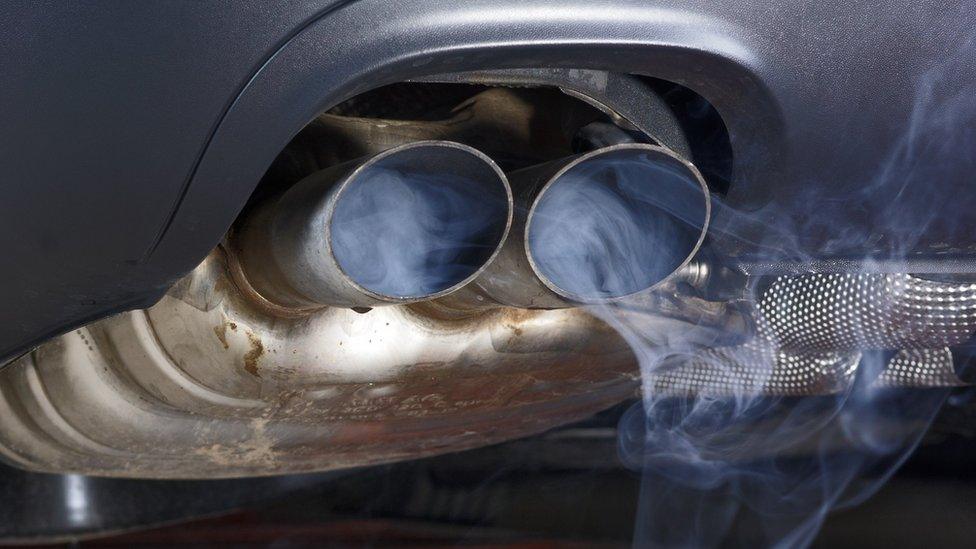Manchester clean air zone delayed again over bus technology
- Published
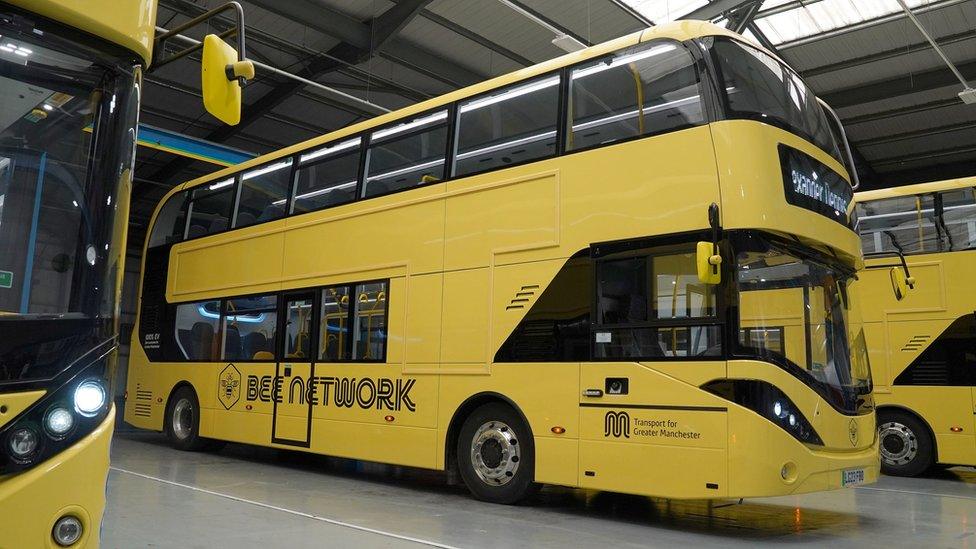
Greater Manchester aims to introduce less-polluting electric buses in the coming years
Plans for a clean air zone in Greater Manchester will be delayed again after it emerged claims about reduced bus emissions may not be accurate.
About 1,150 of the region's 2,063 buses were modified at a cost of £15m to cut levels of nitrogen dioxide.
However the government paused the rollout after retrofitted diesel buses did not cut emissions as expected.
Local officials said they still hoped to comply with legal limits on nitrogen dioxide by 2026.
Currently in operation in cities such as Birmingham and Sheffield, clean air zones (CAZ) aim to cut pollution and encourage use of less-polluting vehicles.
The proposal for the Greater Manchester CAZ has been on hold since February 2022 after a backlash to potential charges for users of certain vehicles.
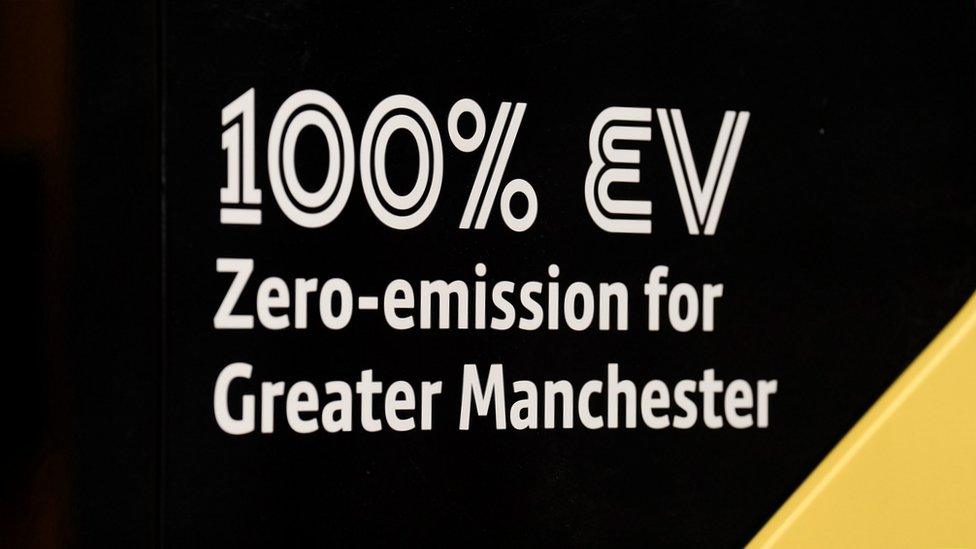
Greater Manchester officials aim to achieve a zero-carbon target by 2038
Transport for Greater Manchester has previously said it is introducing more than 200 electric buses, which would lead to a zero-emission fleet by 2032.
Local officials had been due to provide the government with updated data about expected reductions in air pollution this month but that will now be delayed due to the paused rollout.
A spokeswoman for Clean Air Greater Manchester said the buses' introduction would still contribute to "a significant improvement in air quality, tackling not just nitrogen dioxide but other pollutants too".
She said local leaders "remain committed to an investment-led, non-charging GM Clean Air Plan" and that "work is continuing to ensure that we deliver compliance with legal limits for nitrogen dioxide as soon as possible and by 2026 at the latest".
The government has launched a review of the retrofit technology, which is set to conclude this autumn.
A government spokeswoman said they would "work closely with local councils to help them improve air quality, including with using technology to help improve bus emissions".
"We have paused the rollout of bus retrofit technology and are conducting further research to understand the technology and to work out how best it could be improved."

Why not follow BBC North West on Facebook, external, Twitter, external and Instagram, external? You can also send story ideas to northwest.newsonline@bbc.co.uk, external
Related topics
- Published3 June 2023
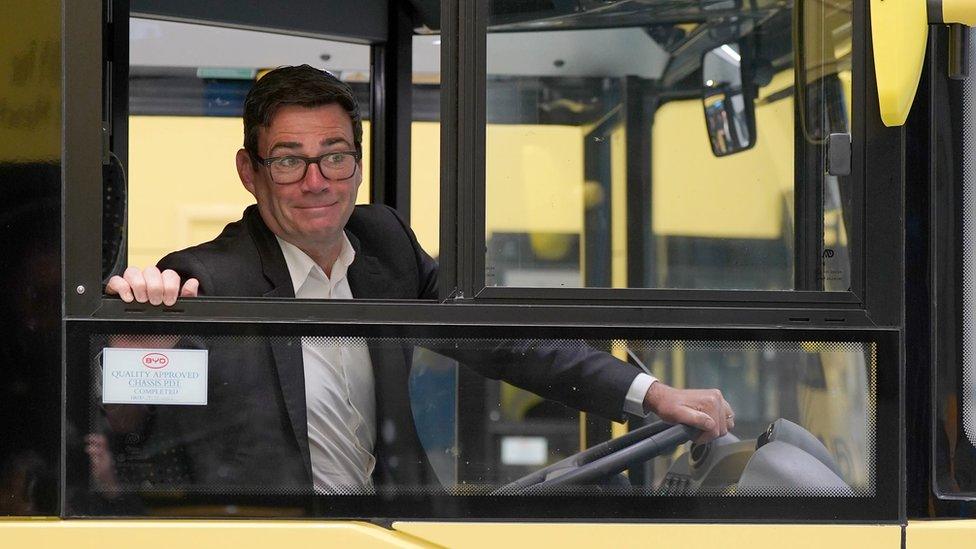
- Published4 February 2023
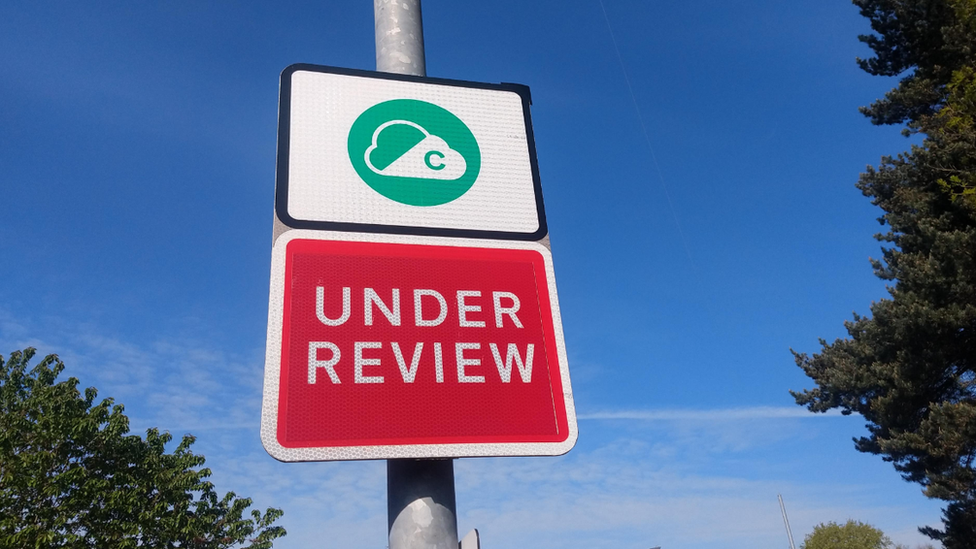
- Published21 October 2022
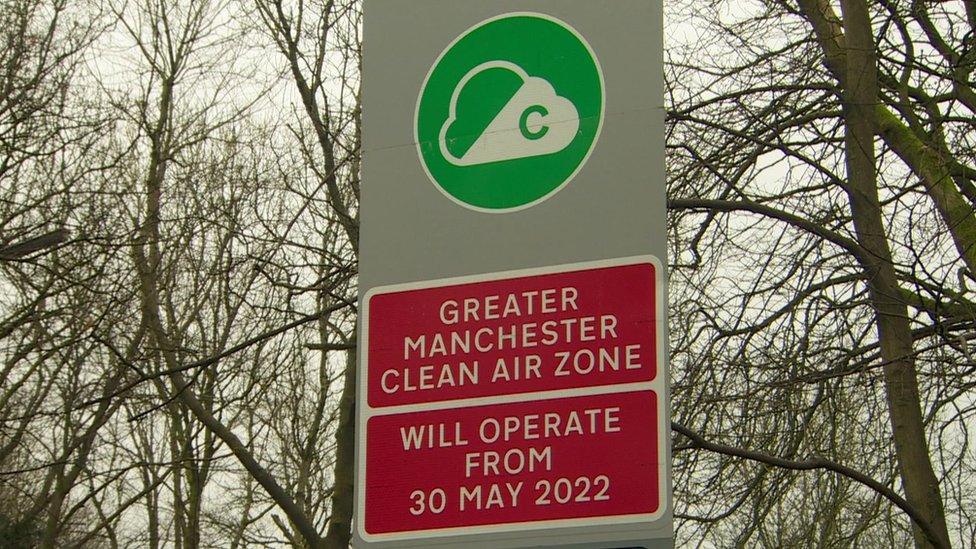
- Published4 February 2022

- Published12 April 2019
